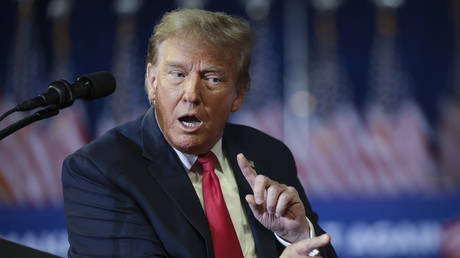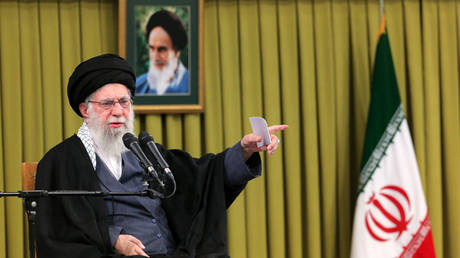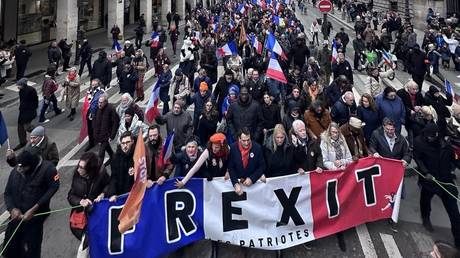
The former president’s legal team slammed a lower court’s ruling as a “stunning breach of precedent”
Former President Donald Trump has asked the Supreme Court to invalidate a previous ruling which said he is not immune to criminal prosecution for actions taken while he was still in office, hoping to reverse the decision as he faces charges for alleged interference in the 2020 election.
In a motion filed on Monday, Trump’s defense team urged the nation’s highest court to issue a stay on last week’s appeals court ruling, which it slammed as “a stunning breach of precedent and historical norms.”
In announcing the the filing, Trump’s reelection campaign said the stay is necessary to prevent his political rivals from using “the threat of future prosecution as a weapon, effectively blackmailing and extorting him to influence his most sensitive and important decisions.”
Should the Supreme Court grant his request, Trump’s election interference trial would remain stalled, having already been delayed for two months as attorneys debate the immunity question. Five of the court’s nine justices – three of whom were appointed by Trump himself – would have to support the move.
Special counsel Jack Smith, who is leading the case against Trump, previously asked the Supreme Court to review the matter on an expedited basis, even prior to the appeals court decision, but was rejected without explanation.
The previous ruling found that Trump does not enjoy special legal protections as a private citizen, stating “any executive immunity that may have protected him while he served as president no longer protects him against this prosecution.”
Smith has charged Trump with four counts of “election subversion,” accusing him of attempting to overturn the results of the 2020 presidential race. The charges include conspiracy to defraud the US and obstruct an official proceeding – referring to the January 6, 2021 riot at the US Capitol. The 45th president has pleaded not guilty and argued for presidential immunity, as he was still in office at the time of the unrest.




